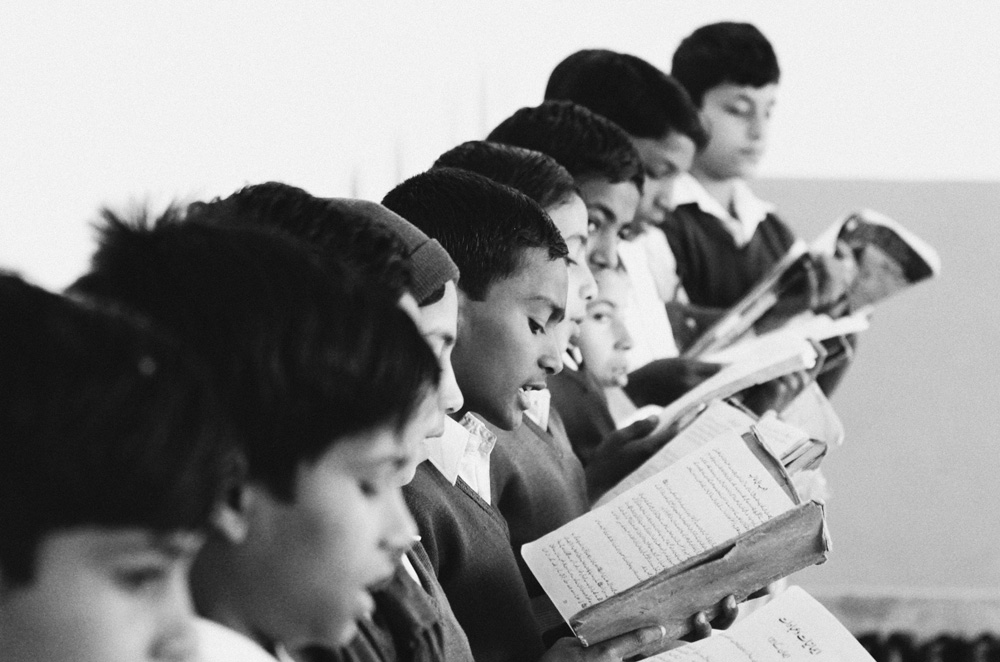Fayyaz Ahmed
By
Muhammad Shoaib Khan
Education is the indispensable need of every individual in the society. It is necessary for everyone to seek education. It does not mean holding a degree or cramming books, in fact it’s the knowledge and awareness about everything related to an individual, i.e. the society, culture, norms, values, religion, etc.
Education not only provides the knowledge but also the confidence in every aspect of life. It is the foundation of human beings that makes them superior to other living beings. Nature has its own ways of learning and the emphasis on its significance is evident from the Holy books as well.
The educational system of Pakistan has many flaws but somehow it is still meeting the global standards leaving many countries behind.Pakistan has a number of leading national & international level institutes which also offer student exchange programs and hold a good chunk of foreign students. Though there are some major loopholes in this system, the Government of Pakistan has shown some positive development in this regard. Funds allocation for educational sector is one of the foremost steps.
Let’s take a look at the education system of Pakistan. In the private sector no set principles are defined. This goes to the extent that there is not even the same curriculum for all students around the country. Whereas in Higher secondary levels the major setback is privatisation of these institutions, which results in negligence in so many aspects such as policies and standards. The responsibility lies with the policy makers to set one standard for all educational institutions to follow.
At the university level, there are set standards and policies made and implemented by the Higher Education Commission (HEC). This feels like a fresh breeze in this situation. HEC not only ensures the standards and policies but also sends many students abroad on scholarships for undergraduate & postgraduate programs. This helps in the development and grooming of students personally and professionally.
Even with these conditions, Pakistan has been able to produce a number of brilliant students such as Ali Moeen Nawazish; the youth ambassador, late Arfa Karim; the youngest Microsoft certified professional (MCP) and many others.
Pakistan is considered one of the diverse cultural societies because of its rich cultural heritage. A few of the major cultures are Punjabi, Sindhi, Balochi and Pakhtuns, which leads to the emergence of many subcultures as well. The diversity of cultures has a great impact on the educational system, i.e. the teaching methods and strategies varying from one culture to another. This effect has increased tremendously after the 21st amendment in the constitution in which the educational power is transferred from federal to provinces.
A few cultures have given great power to their privileged people. These involve feudal lords, land lords, beurocrats, etc. Since these people comprise a major part of our political system, their uneducated yet rich influential background affects their ability of decision making. Meagre educational threshold, poor policy making and lack of vision not only affect the political system but also the educational system.
As Pakistan is considered a democratic structure, the government in the country changes every five years. The majority of politicians have the same approach of making more money and less development, therefore the educational sector has major setbacks because of this materialistic approach and pitiable decision making. Sluggish development in the governmental sector results in lack of availability of professionals and opportunities to deal with such issues of the society.
For this purpose, some major stakeholders are working their way forward, one of which is the media. The media plays a significant role in spreading awareness among people, making them more mobilized and aware of their constitutional rights. It also helps in making people conscious about education through some strong media campaigns such as Alif Bay Pay Per Yaqeen, Girls education in Pakistan, Education for all and many more. Media, being the prominent stakeholder, has brought many national and international allies to the table in this regard, which is considered a silver lining.
Considering the huge impact of politics and media on the educational sector, the culture and background of political and influential people should not affect the development of this component in Pakistan. Politics must remain aside from the education system, i.e. the standard of education must not be politicized on any level, as education is one of the foremost steps for the development and prosperity of the country.
As the founder of Pakistan the Great Quaid-e-Azam said:
“Come forward as servants of Islam, organise the people economically, socially, educationally and politically and I am sure that you will be a power that will be accepted by everybody”
With all these efforts, we are moving towards a shining and better future.



No Comments Yet!
You can be first to comment this post!